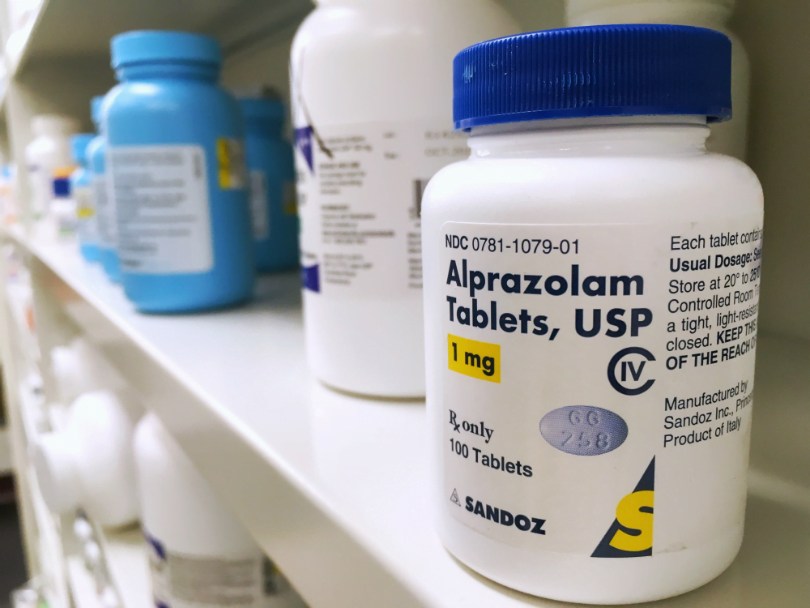Xanax is the most prescribed psychiatric medication in the U.S., and many patients who use it will become addicted to the drug.
Xanax addiction is an epidemic in the United States, costing people their money, jobs, families, and possibly their lives.
Addiction is a terrible illness and extremely difficult to overcome due to the intense and painful withdrawal symptoms people experience.
If you or a loved one are addicted to Xanax and are ready to take the next steps to beating the addiction, we have the information you need.
Understanding Xanax Addiction
Before discussing how to get treatment for a Xanax addiction, we need to understand what the drug is, how your body reacts to it, and what to expect when you quit taking Xanax.
What is Xanax?
Xanax is a Benzodiazepine that is often prescribed by psychiatrists to treat anxiety and panic disorders.
While there are several Benzodiazepine medications available as prescriptions, Xanax is the most popular of them all.
Xanax acts on the brain and the nerves, producing an excess of the GABA neurotransmitter. This causes the user to enter a calm and relaxed state.
Xanax is a short-acting medication, meaning it’s rapidly absorbed by the body causing effects to be felt in less than an hour.
However, the effects only last for a few hours, so people may take several doses in a single day to deal with their anxiety.
What Are the Short-Term Effects of Xanax?
Xanax is used to treat anxiety and panic disorders because it affects chemicals in your brain in a way that will make you feel extremely relaxed.
People will often take Xanax only on occasion if they are feeling particularly anxious or about to have a panic attack.
The Xanax will calm their anxieties down so they are no longer scared, worried, or paranoid.
As with most prescription medications, Xanax has a number of short-term, undesirable side effects, some of which are:
- Drowsiness
- Loss of coordination
- Feeling sad
- Loss of appetite
- Lightheadedness
- Trouble speaking
- Trouble focusing
What Are the Long-Term Effects of Xanax?
Using Xanax regularly for a long period of time can likely develop into an addiction.
Along with the risk for addiction, Xanax can produce some other negative, long-term side effects, including:
- Depression or feelings of emptiness
- Irritability
- Loss of interest in things you used to enjoy
- Difficulty sleeping
- Forgetfulness
What is Xanax Addiction and Withdrawal?
When someone is addicted to Xanax, it means they cannot go a long period of time without taking the drug due to experiencing painful withdrawal symptoms.
Xanax is addictive because it is habit-forming.
People will start to depend on Xanax more and more often to help their anxiety until they can no longer function without using the drug regularly.
If they do not use the drug regularly, they will go into withdrawal. People in withdrawal from Xanax may experience some of the following symptoms:
- Headaches
- Tremors
- Muscle pain
- Diarrhea and vomiting
- Insomnia
- Heart palpitations
- Paranoia, panic, and anxiety
- Seizures
- Depression and suicidal thoughts
Intense withdrawal symptoms can last up to four days, with acute withdrawal symptoms lasting up to a month afterward.
These intense withdrawals make quitting Xanax is so difficult. People will start to feel the worst symptoms of their lives, and know it will go away if they give in to the drug again.
This is why people addicted Xanax need help to recover from the people around them, and from addiction and medical professionals who know how to best treat the disease.
Getting Treatment for Xanax Addiction
Now that you or your loved one has decided to treat their addiction, its time to look at all the options available.
You’ll need to do your research to find what will work best for your recovery.
There are three main types of addiction treatments: hospitalization, inpatient residential, and outpatient treatment.
Hospitalization
You or your loved one may need to consider inpatient hospitalization at the beginning of you detoxification from Xanax.
This is because some of the withdrawal side effects could be life-threatening, such as heart palpitations, seizures, and thoughts of suicide.
If you have a history of any life-threatening conditions or symptoms, you should be in a hospital surrounded by 24-hour surveillance by medical professionals.
Inpatient Residential Treatment
Residential programs are any treatments that require admission. These are otherwise known as rehab centers.
This option is generally best for people who need the most care and attention through their recovery.
Rehab centers will often offer the patients something to minimize the withdrawal effects of Xanax, such as Suboxone or Methadone, especially in the early stages.
The residential program will also include intensive behavioral therapy and individual and group counseling.
Inpatient programs will typically last at least 30 days, and some may last several months.
If you or your loved one needs to be in a completely drug-free place, with medical care on sight, then residential care would be the best option.
Outpatient Detoxification
Outpatient programs are typically for those individuals who have more manageable withdrawal symptoms that are not life-threatening.
They do not require medical supervision so they can continue living at home during the detoxification period.
Outpatient treatment is usually for those people who are in the early staged of addiction, making the withdrawals less severe.
Patients will still be required to attend daily or weekly therapy and group counseling sessions as a part of the program.
Need Additional Help?
We have a database of over 10,000 rehab centers for you to search through. Most health insurances are accepted at these centers, so a lot of the expenses will be covered.
Be sure to do all the research you can on potential treatment programs. Choosing the right one for you is important for your recovery.
















